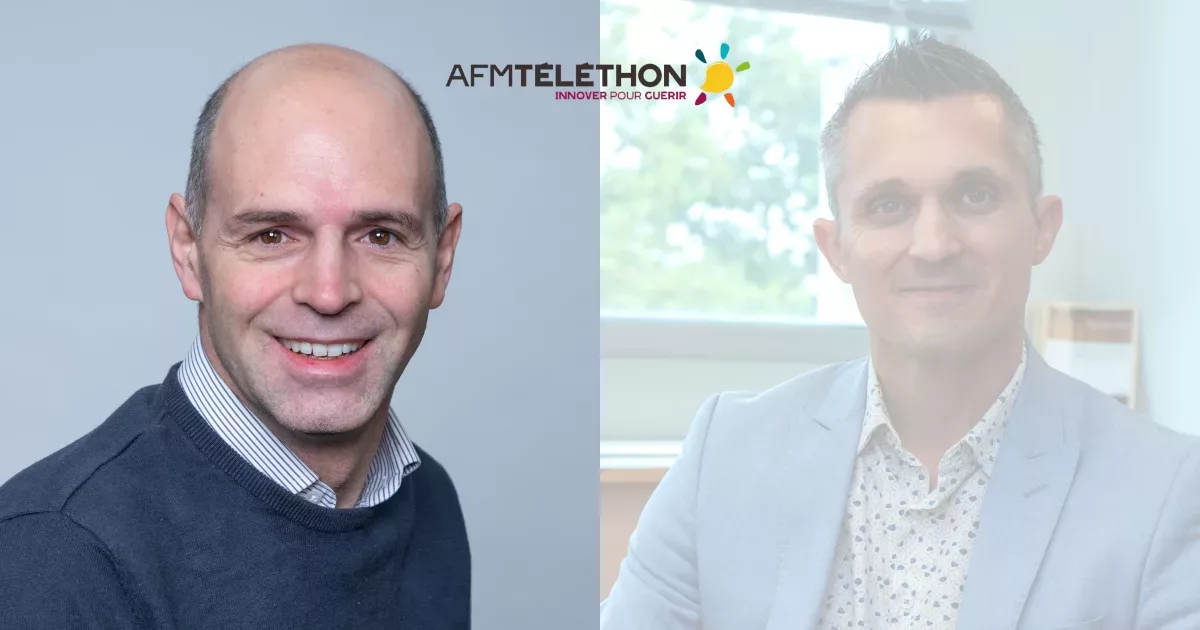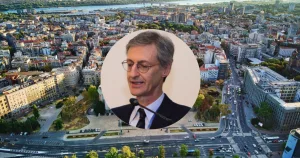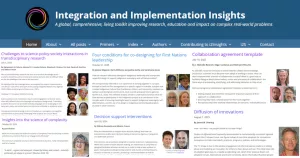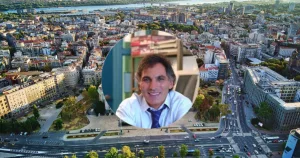François Lamy: “AFM-Téléthon approach to rare diseases treatment is unique”
The AFM-Téléthon association in France funds its own research labs and its own program to find treatment for genetic rare diseases. What makes it unique? It is run entirely by patients and their parents. The first of two interviews that explain everything

Could you introduce AFM-Téléthon and your role?
François Lamy: I am a Vice-Chairman of the AFM-Téléthon board. Like all board members, we are either patients ourselves or parents of patients. My son has Duchenne muscular dystrophy, which is why I volunteer on the board. The association was founded in the 1950s by a mother whose four sons with Duchenne muscular dystrophy all died before age 18, at a time when there were no treatments.
What are the core values of the association?
F. L.: We refuse fatality. Facing incurable diseases, parents cannot accept to be told that nothing can be done. So, we do something. All parents I know become experts in their child’s illness. They develop a unique competence to provide care, improving comfort and prolonging life. These are progressive diseases, so there is an urgency to find solutions. The strength of the collective is crucial, allowing parents to find practical solutions together, not just medical ones, but things like going to school or adapting housing, and building a fulfilling life for their children in spite of the fatal disease.
What is the guiding strategy for AFM-Téléthon?
F. L.: Our strategy, reinforced by the significant funds raised thanks to Téléthon, a yearly national mobilization through television and all other possible media, is a mission of general interest. Every decision is made to advance research for all rare diseases, not for one specific patient or pathology. We refused from the start to focus on just one pathology. There are over 8,000 rare diseases. The idea was that by advancing research for one of these would advance knowledge for others. This was theoretical in the 1990s but is a reality today.
We meet today at Généthon, located in Évry, 20 kilometers or so South of Paris. What exactly is Généthon?
F. L.: Généthon is a scientific research laboratory created by AFM-Téléthon in the early 1990s.
Why did AFM-Téléthon create its own laboratory?
F. L.: When the first Téléthon has been held in France, in 1987, the amount of money collected exceeded all expectations. Facing these funds, there was a rapid desire to create a scientific laboratory to understand the genome, as the diseases AFM-Téléthon is dealing with are of genetic origin. At the time, only a handful of genes causing diseases were identified. Généthon was created because automating genome decoding, that it set out to do initially, did not exist anywhere else in the world.
Was it successful?
F. L.: Généthon scientists worked hard to decode human DNA and map the genome. This was achieved in 1995, beating other labs, including American ones working manually. The genetic maps were then transmitted to UNESCO to be protected as world heritage and so that they could not be patented. This provided an invaluable resource for scientists.
Why did Généthon changed its research goals then?
F. L.: In the mid-1990s, with sufficient genome knowledge available for initial work, the association decided it wasn’t their role to pursue fundamental genetic exploration further, but rather to focus on therapeutics. Then it has been decided to focus on gene therapy. The genotyping work was taken over by a public structure called Génoscope.
Does AFM-Téléthon fund research beyond Généthon?
F. L.: We fund three main laboratories: Généthon for gene therapy, Istem for stem cells, and Institut de Myologie, on muscle research. Additionally, we fund over 200 research projects annually through calls for proposals, ranging from fundamental research to preclinical studies. We also have larger multi-year “strategic projects” with a clear clinical ambition, that we fund externally.
Who makes the final decisions on which projects are funded?
F. L.: The Board of Directors is sovereign on decisions. But the Scientific Council, composed of over 90 permanent members and soliciting up to 5,000 experts worldwide, evaluates project proposals and provides advice. We respect their advice greatly because they are high-level scientists. However, the Board, consisting of only patients and parents, makes the final decision: we consider scientific excellence, but also other criteria like a project’s therapeutic potential, or focus on a neglected rare disease.
Is it relevant that non-scientists make these funding decisions?
F. L.: It is often questioned, especially by scientific institutes. However, Généthon currently has a pipeline of dozens of clinical trials. My analysis is that while scientists here are not more intelligent than those elsewhere, the strategic orientation has been clear from the start: finding medications, not just publishing nice articles in scientific journals. This changes how scientists approach their work. The importance of citizens, specifically patients, in research orientation is essential here.
Is this model of a patient-led organization funding and driving research applied elsewhere?
F. L.: It is certainly unique in France. And, from my knowledge speaking with many international rare disease associations, there is no equivalent elsewhere. In other countries where philanthropy is important for research funding, for instance in the USA, foundations are mostly family-based, and focus on a single disease: our strategy of general interest, aiming to advance research across many rare diseases, is also quite unique.
Interview by Luc Allemand
SUBSCRIBE TO OUR NEWSLETTER
To stay up to date with our projects and the development of the EHC
Read more articles

Gian Francesco Giudice: “Ethical responsibility is essential in fundamental research”
From hypothetical black holes to environmental impact studies, CERN navigates risk, transparency, and moral responsibility at the frontiers of human

Dealing with the complexity of society and environment
A global toolkit for tackling complex problems with more than 600 different methods Ever wish you had a free toolkit

The Moon & the Global South: Voices, Risks & Promise
Researchers warn that without inclusive governance, the Moon could become “a new arena for old patterns of exclusion” When rockets

Borko Furht: “AI shouldn’t be given much autonomy without maintaining accountability”
Beyond Superintelligence: The Real Challenges of Keeping Humans ‘In the Loop’ Borko Furht is a professor in the department of